By Irfana Husen, Audiologist and Speech Language Therapist, District Disability Rehabilitation Centre, Mysuru
International Day of Persons with Disabilities (IDPD) is annually observed on Dec. 3 to promote full and equal participation of persons with disabilities and to take action for the inclusion of persons with disabilities in all aspects of society and development.
Disability inclusion upholds human rights, sustainable development and peace and security. It is also central to the promise of the 2030 Agenda for Sustainable Development — to leave no one behind. The commitment to realising the rights of persons with disabilities is not only a matter of justice. Rather it is an investment in a common future.
The global crisis of COVID-19 is deepening pre-existing inequalities, exposing the extent of exclusion and highlighting that work on disability inclusion is imperative. People with disabilities are one of the most excluded groups in our society and are among the hardest hit in this crisis in terms of fatalities.
This year’s theme ‘NOT ALL DISABILITIES ARE VISIBLE’ also focuses on spreading awareness and understanding of disabilities that are not immediately apparent, such as mental illness, sight or hearing impairments, brain injuries, neurological disorders, learning disability and cognitive dysfunctions.
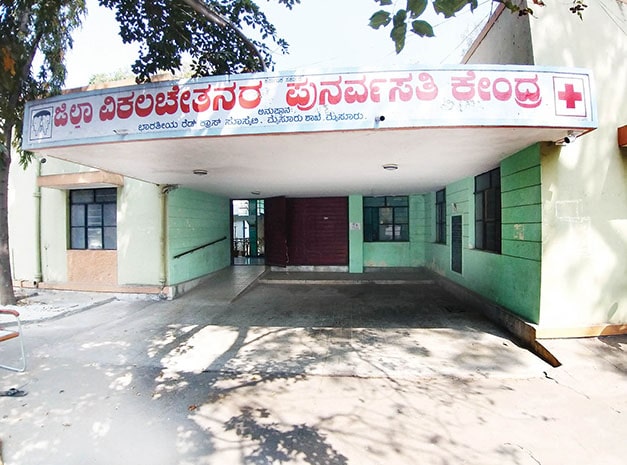
Sadly, even under normal circumstances, persons with disabilities are less likely to access healthcare, education, employment and to participate in the community activities. An integrated approach is required to ensure that persons with disabilities are not left behind.
The District Disability Rehabilitation Centre (DDRC) Mysuru was started as an outreach activity under the Ministry of Women And Child Development and the Department for the Empowerment of Differently-abled and Senior Citizens with Indian Red Cross Society Mysuru Chapter. With COVID-19 pandemic, working for the disabled was challenging. However it does not stop them from getting their rights.
Invisible disabilities: Hearing impairment
Hearing loss has often been called an invisible disability as there are no visible markers to signal others that they have a disability. This goes unnoticed and untreated with only about one in 10 of those needing hearing equipment ever seeking treatment. This is especially true for those with age-related hearing loss. DDRC has identified 2,195 persons with hearing loss and provided behind-the-ear hearing aids. Also, special facility has been provided to senior citizens (age-related hearing loss) and approximately 200 pocket hearing aids have been distributed.
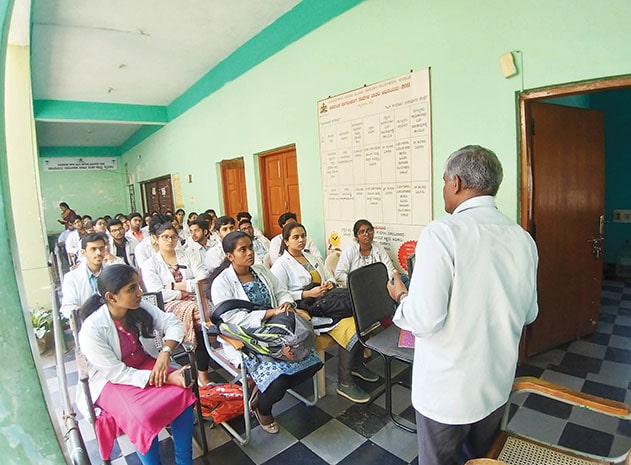
Learning Disability
Learning disability is not a problem with intelligence or motivation and children with learning disability are not lazy or dumb. In fact, their brains are simply wired differently and this difference affects how they receive and process information.
A child may struggle with reading and spelling while another might love books but cannot understand mathematics. Still another child may have difficulty in understanding what others are saying or communicating. Clinical Psychologists and Speech Therapists in DDRC are working with these children by giving therapy to improve skills.
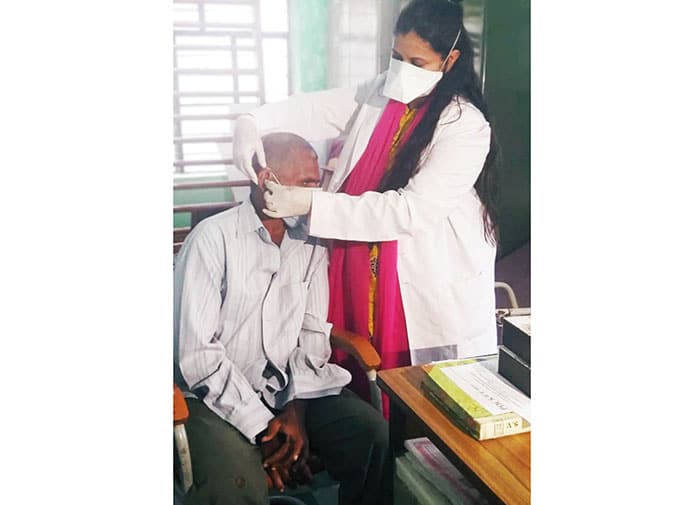
Mental illness
Mental illness affects many people but what most do not realise that it does not just cause emotional problems. It rather causes cognitive problems too.
The person with mental illness may find it difficult to think clearly, pay attention and remember. For some, cognitive problems are only evident during illness. For others, cognitive problems are more persistent. If mental illness is managed well, the person can lead a more productive life and have longer periods of stability. Counselling and various types of therapies are carried out by psychologists at DDRC.
Community-based rehabilitation
Door-to-door survey will be carried out by the DDRC staff to identify persons with disability where assessments are done by a physiotherapist, psychologist and an audiologist. Required information and providing hearing aids and appliances will be done to all eligible disabled persons.
Training programmes
Apart from therapies and camps, DDRC also carries out training programmes for various medical and non-medical professionals. From providing information about Unique Disability Identity Card to explaining various kinds of disabilities, how to identify, where to refer and what rehabilitation can be given to improve will be provided by DDRC staff.
The COVID 19 pandemic has deeply affected communities around the world, especially vulnerable ones like persons with disabilities. Disability prevalence is higher in developing countries where persons with disabilities are more likely to experience less education, poorer health outcomes, lower levels of employment and higher poverty rates.
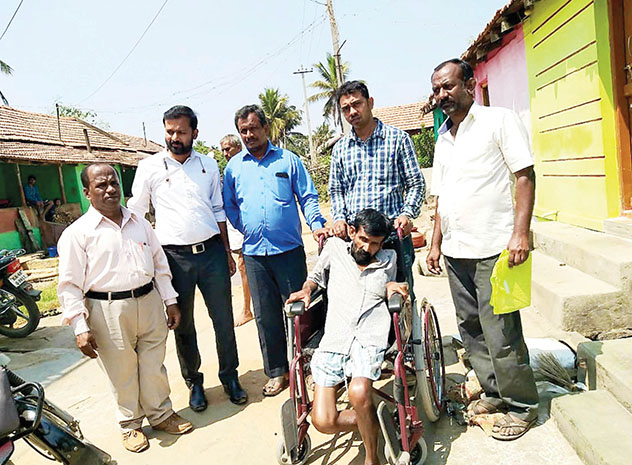
Helping those in need
The Indian Red Cross Society with DDRC teams are able to reach out most of the disabled and non-disabled people with the helping hand — from 23.03.2020 to 12.07.2020 — by providing masks, sanitisers, soaps, grocery kits, protein food kits and apple juices worth Rs.12,46,200.
Employment opportunities
A disability, whether physical or mental, should not limit anyone’s career aspirations or job prospects. Finding success and satisfaction at work is ultimately about identifying interests and where their strongest attributes and skill lie.
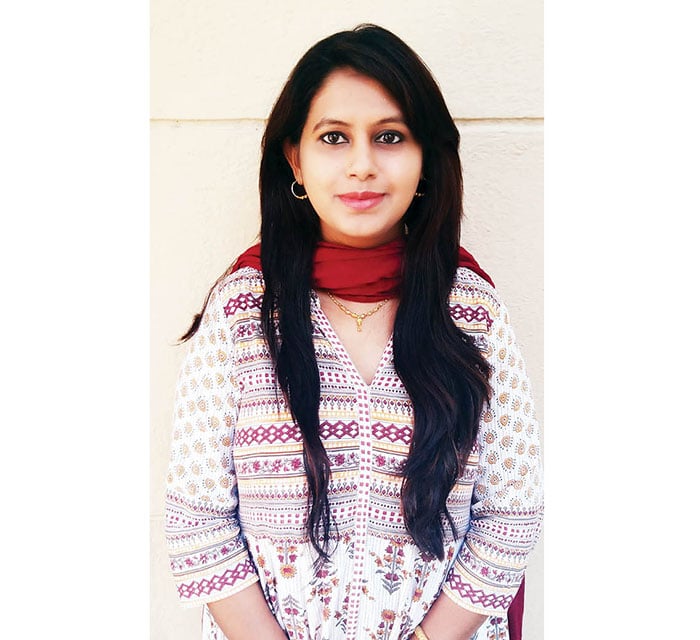
Unique Disability Identity Card (UDID)
DDRC also helps person with disability to get employment in various sectors. Guidance and co-ordination are done by Nodal Officer Arjun at DDRC from skill development training to employment placement.
Unique Disability ID (UDID) Card for persons with disabilities project is an initiative of Department of Empowerment of Persons with Disabilities, Government of India. The UDID project is being implemented with a view of creating a national database for persons with disabilities and to issue a unique disability identity card to each person with disabilities. A total of 22,000 persons with disabilities are in Mysuru district. Under the Department of Women And Child Development and the Department for the Empowerment of Differently-abled and Senior Citizens, awareness camps are conducted by DDRC staff. This effort has enabled over 9,000 persons to get UDID cards in Mysuru. To avail this card and information regarding UDID cards, people can visit DDRC at Tilaknagar in city.



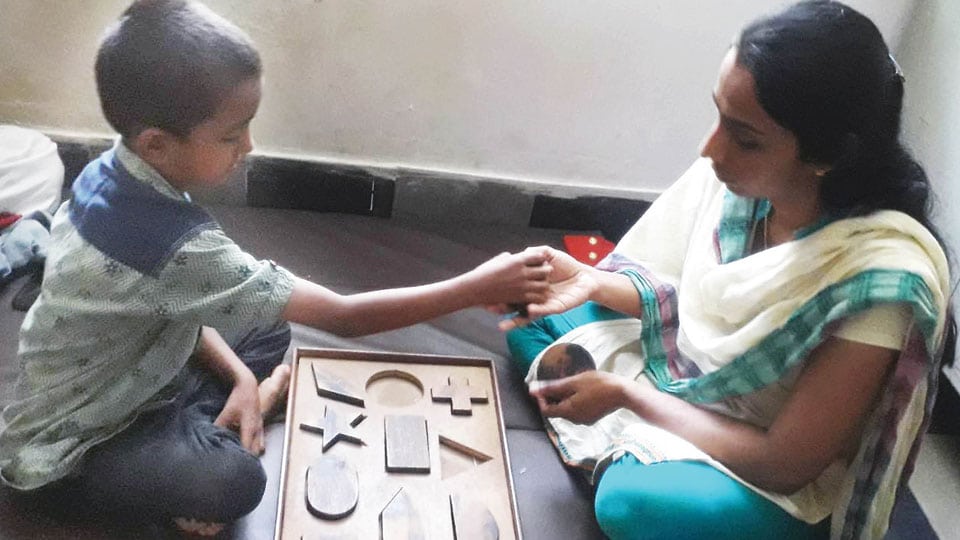




Recent Comments